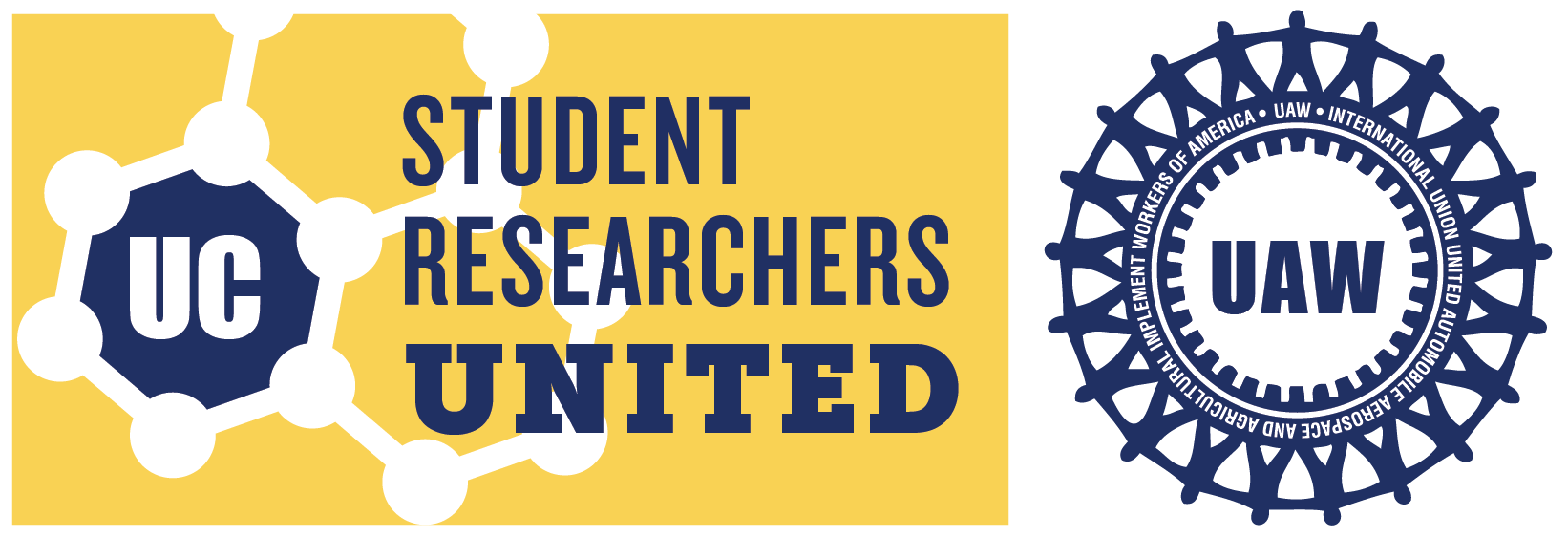A quiet campaign by UAW organizers at the University of California ended Monday with more than 10,000 signed cards officially submitted to authorities that would create the Student Researchers United-UAW, representing more than 17,000 higher education workers.
These union activists are not required to hold a formal election and can, instead, submit the signed 10,441 cards to California’s Public Employee Relations Board in Oakland. Researchers marched down to the office at 1330 Broadway carrying a banner just after 2 p.m. Signatures will have to be certified as union organizers await instructions on next steps.

University of California student researcher march Monday to submit more than 10,000 cards to the California Public Employee Relations Board at 1330 Broadway in Oakland, California. Student Researchers United-UAW would represent about 17,000 members on 10 UC campuses. Provided By The UAW
The action means the UAW would represent all 10 UC campuses and Lawrence Berkeley National Laboratory. Organizers made a point of noting that every site has been actively involved in collecting union cards. These researchers, who get paid by the university, have finished their undergraduate studies and now work toward earning a Ph.D. degree. Their work nets millions of dollars in grant money to help the UC system maintain its role as a world leader in securing patents.
“We are so proud to have signed union cards from more than 60% of our colleagues,” Katie Augspurger, a graduate student researcher in the Buchwalter Lab at UCSF, said in a news release. “Organizing during COVID was a challenge, but nearly everyone we spoke with felt strongly that using our collective voice to improve working conditions would improve our lives and the quality of research.”
Augspurger, 26, is in her third year studying proteins on the outside of the nucleus and their role in stem cell development, which helps in the study of aging.
“The UAW has a proven track record for improving working conditions for its academic workers,” she told the Free Press. “We would like to see similar strides in working conditions, establishing protection against harassment and discrimination and establishing a grievance procedure.”
Already the UAW has a strong presence on UC campuses as well as other schools, particularly on the East and West Coasts. The UAW has earned a reputation among higher education workers and professionals including lawyers and engineers for negotiating strong contracts with extensive safety protections.
Vacation loss, threats
Academic workers often mention that researchers have one boss in a lab who can potentially eliminate earned time off or make threats that can ruin careers with little recourse.
“Our people are studying cancer, other diseases, microbiology, computer science, computing and psychology and more,” Augspurger said.
Organizers began gathering signatures in the fall and made a final push this spring.
Researchers said they want a contract that helps gender parity, secures protections for international workers, and acknowledges researchers’ contributions, the news release said.

An estimated 250 University of California student researchers submit more than 10,000 union cards to the California Public Employee Relations Board, 1330 Broadway, in Oakland, California on Monday, May 24, 2021. Student Researchers United-UAW will represent about 17,000 members on 10 UC campuses. Provided By The UAW
UAW Vice President Cindy Estrada, head of the UAW Organizing, Women’s and Chrysler departments, said in a statement, “Workers in higher education are organizing because standing together is the best way to address workplace challenges like low wages, unstable benefits and persistent harassment and discrimination.
The UAW negotiation record speaks for itself, she said. “We are thrilled to welcome the UC Student Researchers into the UAW.”
UC researchers share similar concerns to those voiced by Columbia University medical researchers when 1,700 organized with the UAW in 2020.
Felix De La Torres, general counsel for the employee relations board, acknowledged receipt of the union cards on Monday.
He told the Free Press that the neutral agency will process the petition and make sure it follows all steps required under statutes and regulations to proceed with the certification process. Then the UC system will be contacted for a response, and the school system will provide a list of names that can be cross-checked with the union cards to verify the union has majority support.
‘Sheer size’
The number of signatures was notable because only half the estimated 17,000 is needed to proceed, so organizers left a buffer for challenges, De La Torres said.
While UC has the ability to object to things like who can qualify for the union and whether it will be recognized, the process is moving forward now with a case number. The validation process will officially begin and could go as fast as one month or take longer if met with challenges.
“When we’re dealing with graduate students, there are additional complexities,” De La Torres said. “This is a very unusual petition, just by its sheer size this is much larger than we normally deal with.”
The dues-paying members outside the auto industry have helped diversify the union, which aids stability as factory work shrinks with a pivot to all-electric vehicles. Higher education workers helped fuel a strike fund that supported General Motors workers in 2019, and that strike fund can add strength during all contract talks.
